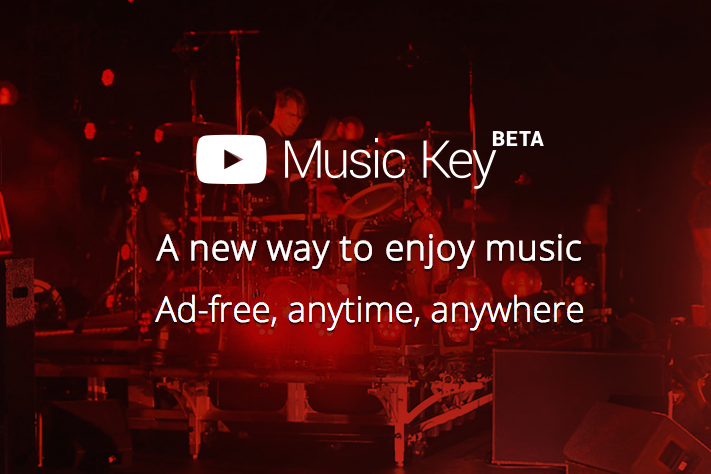
YouTube plans to convert its millions of users to the premium subscription service by offering a bunch of goodies that will make many music streaming fans excited. Those who subscribe to Music key will have access to the 30 million tracks in the Google Play Music library, ad-free music videos, background playback, and offline caching, so that you can view videos and listen to music even when your Internet connection cuts out.
With Music Key, you’ll also be able to listen to entire albums in high-quality audio from the YouTube app. There will also be playlists available for your listening pleasure that are organized by theme and artist. YouTube will also give you recommendations based on your listening history to help you find new artists you might enjoy.
Most of the same features will be available to normal YouTube users, but they’ll have to deal with ads. YouTube is hoping that offline playback and the end of ads will be enough to convince people to pay for Music Key. After all, if it worked for Spotify, why not for YouTube? YouTube says its offering invites to its biggest music fans and creators, but that anyone who’s interested in testing out the beta can sign up on the new, Music Key website.
The decision to add a paid subscription service to YouTube seems to have been in the works for at least a year. Earlier reports mentioned that YouTube was mulling the idea over and signing deals with record labels to make it work. Indie artists put up a fight for a time, but it seems that they caved recently, giving YouTube full authority to push ahead with its plans.
Editors' Recommendations
- Tidal vs. Spotify: Which music streaming service has the features you need?
- Best free YouTube downloaders
- How to move your Google Play library over to YouTube Music
- YouTube Music replaces Google Play Music as default app for tunes in Android 10
- YouTube’s new HD music videos let you relive your youth in vivid detail


